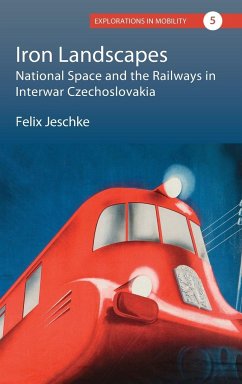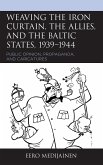Throughout the 1920s and 1930s, the newly formed country of Czechoslovakia built an ambitious national rail network out of what remained of the obsolete Habsburg system. While conceived as a means of knitting together a young and ethnically diverse nation-state, these railways were by their very nature a transnational phenomenon, and as such they simultaneously articulated and embodied a distinctive Czechoslovak cosmopolitanism. Drawing on evidence ranging from government documents to newsreels to train timetables, Iron Landscapes gives a nuanced account of how planners and authorities balanced these two imperatives, bringing the cultural history of infrastructure into dialogue with the spatial history of Central Europe.








